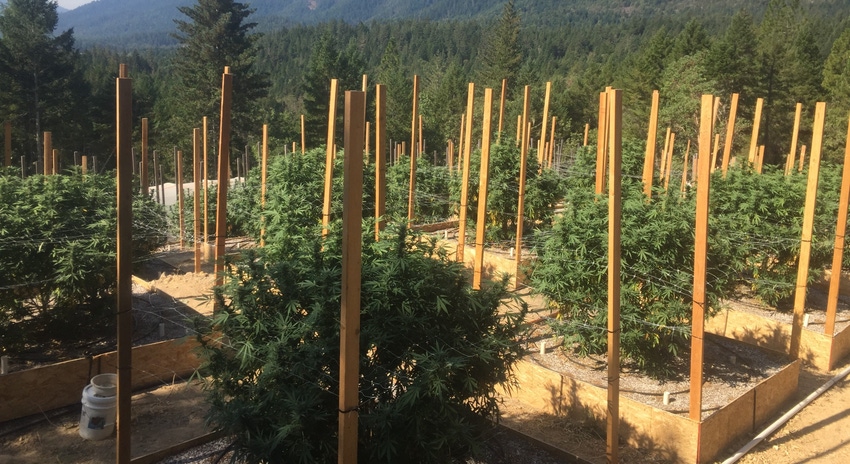
The legalization of marijuana for recreational use has encouraged growers to expand plantings of the lucrative crop. Like any plant, cannabis requires water to grow.
A new study from the Cannabis Research Center at the University of California, Berkeley examined where cannabis growers are getting water for their crops, highlighting significant gaps in cannabis cultivation policy.
Environmental advocates have expressed concern that cannabis farms are diverting water from rivers and streams, which could harm fish and other wildlife.
The researchers studied water use in 11 of California's top cannabis-producing counties – Humboldt, Lake, Mendocino, Monterey, Nevada, San Luis Obispo, Santa Barbara, Santa Cruz, Sonoma, Trinity, and Yolo.
Related: Insatiable demand for pot has created a huge carbon footprint
Using California state cannabis permitting data, the researchers found that cannabis farms rely primarily on groundwater wells, not streams, for their irrigation needs. But pumping groundwater could also have an undesirable effect on wildlife.
“Wells drilled near streams in upland watersheds have the potential to cause rapid streamflow depletion similar to direct surface water diversions,” said co-author Ted Grantham, UC Cooperative Extension specialist and co-director of the Cannabis Research Center.
The Sustainable Groundwater Management Act, or SGMA, enacted in 2014, is designed to prevent overdraft of groundwater and protect water quality and supplies for agriculture, residents, fish and other wildlife.
But according to Grantham, “Most of the cannabis farms fall outside of the groundwater basins regulated under SGMA, so well use represents an important, but largely unregulated threat to streams in the region."
Well use is common
The researchers found that well use by cannabis farms is common statewide, exceeding 75% among farms that have permits to grow in nine of the 11 top cannabis-producing counties. In eight of the 11 counties, more than one-quarter of farms using wells are located outside of groundwater basins subject to state groundwater use regulations. Farms growing larger acreages of cannabis pumped more groundwater for irrigation, while farms with on-farm streams or located in areas that receive more rainfall were less reliant on wells.
The study relied on water-source data only for cannabis farms that have state permits to grow.
Based on models, the researchers estimate the majority (60%) of unregulated Northern California cannabis farms in Humboldt and Mendocino counties are likely to use groundwater wells if they follow the same patterns as the regulated industry.
“Our results suggest that proactive steps be taken to address groundwater use in cannabis regulations in California and call for further research into the effects of groundwater use on streamflow, especially outside of large groundwater basins,” write the authors.
The paper, “Cannabis farms in California rely on wells outside of regulated groundwater basins,” by Christopher Dillis, Van Butsic, Jennifer Carah, Samuel C. Zipper and Grantham is published in Environmental Research Communications at https://doi.org/10.1088/2515-7620/ac1124.
Source: University of California Division of Agriculture and Natural Resources, which is solely responsible for the information provided and is wholly owned by the source. Informa Business Media and all its subsidiaries are not responsible for any of the content contained in this information asset.
About the Author(s)
You May Also Like




